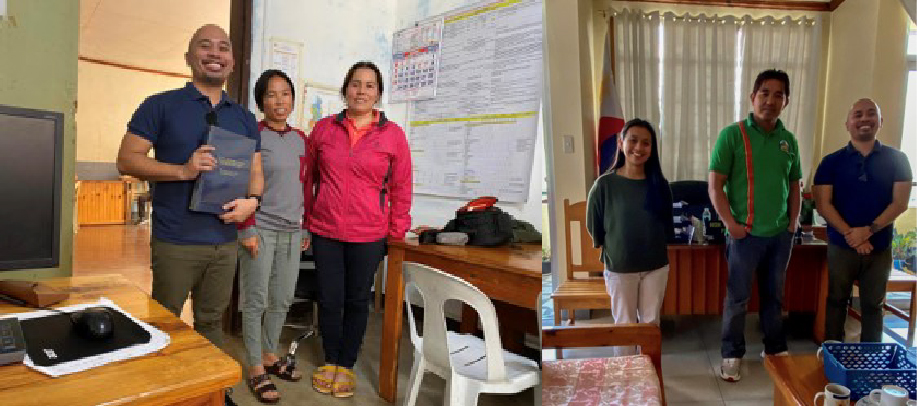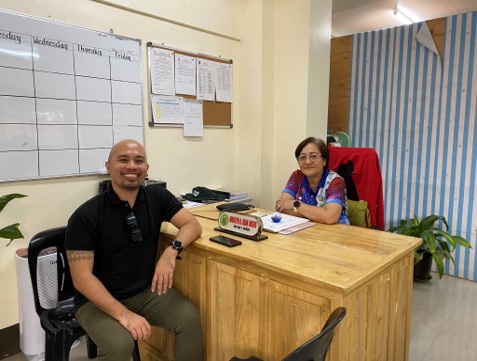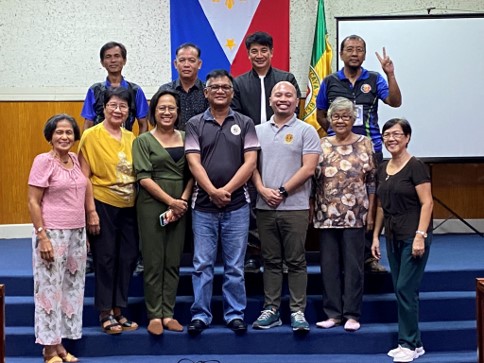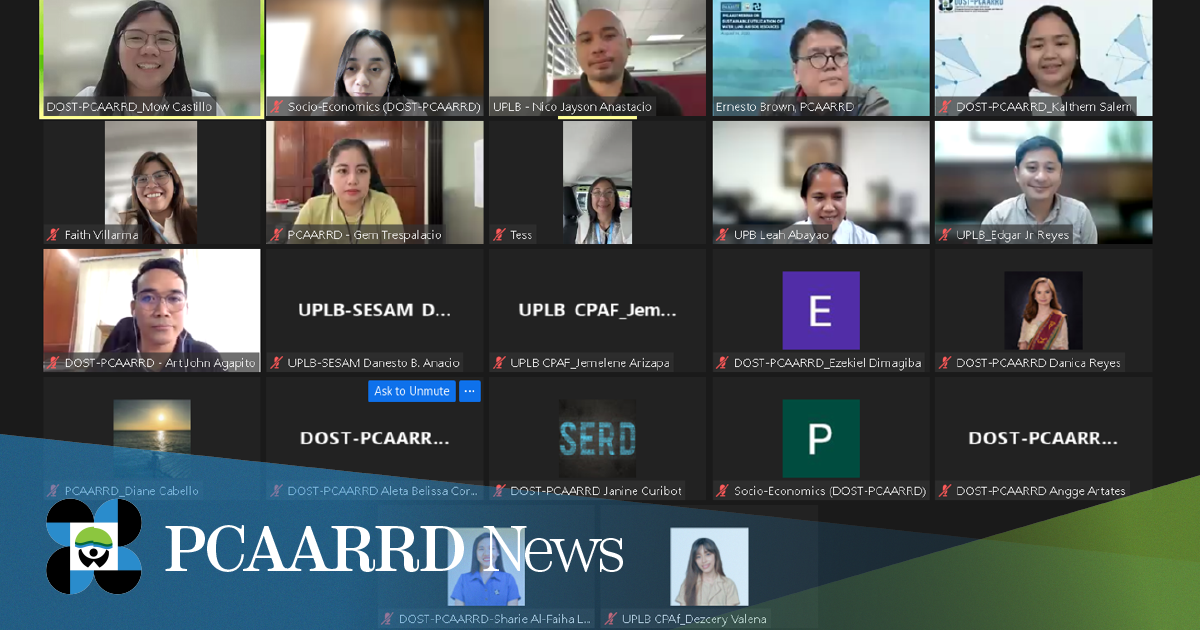
Indigenous knowledge (IK) is a set of knowledge and innovations developed by people in a specific geographic area unique to the culture or community. This knowledge is an important locally available resource, but often neglected by most local development programs and initiatives. In cases where IK is recognized for developing related climate-hazard strategies, it became mostly a backdrop and remained unutilized.
The University of the Philippines Los Baños (UPLB) and the Philippine Council for Agriculture, Aquatic and Natural Resources Research and Development of the Department of Science and Technology (DOST-PCAARRD) initiated the action-research project, “Integration of Indigenous Knowledge in designing Nature-based Solutions for Climate-Smart Agriculture Sector in selected municipalities in Northern Philippines.” The project aims to utilize IK to support local aspirations for the climate-smart agriculture sector.

Courtesy call and initial interview with the Municipal Agriculture Office (MAO) in Bayombong, Nueva Vizcaya. (Image credit: UPLB)
In the project’s inception meeting held last April 11, 2024, Project Leader Nico Anastacio of the Center for Strategic Planning and Policy Studies (CSPPS) of UPLB discussed that the project includes understanding the sociocultural, institutional, and biophysical context of the project sites; co-designing nature-based solutions with local stakeholders to address various climate hazards; and assisting local government units (LGUs) in institutionalizing these nature-based solutions as a vital component in the agriculture sector.
Dr. Anastacio further emphasized the different approaches the project will adopt for each site, considering the presence of Indigenous Cultural Communities (ICCs). Additionally, he noted that the Indigenous Peoples (IPs) and their traditional practices can contribute to addressing change and increased productivity in the agriculture sector. Incorporating IK is important since it values biodiversity and the environment, is nature-based, and respects ecological relationships within the ecosystem.

Pre-Indigenous Knowledge Systems and Practices (IKSP) presentation of Project Leader Nico Anastacio in Bayombong, Nueva, Vizcaya. (Image credit: UPLB)
The project has initially identified sites in the northern Philippines - in Bayombong, Nueva Vizcaya, and Sagada, Mountain Province. These two sites are inhabited by various Indigenous Peoples (IPs) including the Isinai, Ibaloi, Kalanguya, Iwak, Gaddang, Bugkalot, fugao, and Kankana-ey. These sites have the potential for partnerships and have sustainable project outcomes.
The inception meeting was attended by resource persons, Professor and Dean Leah Abayao of the College of Social Sciences of UP Baguio (UPB) and Associate Professor Edgar Reyes of the College of Human Ecology of UPLB.
DOST-PCAARRD and UPLB anticipate that this project will help advance IK-based natural resource conservation practices in local agriculture sectors and increase recognition of the vital role of the IP community in managing natural resources.

